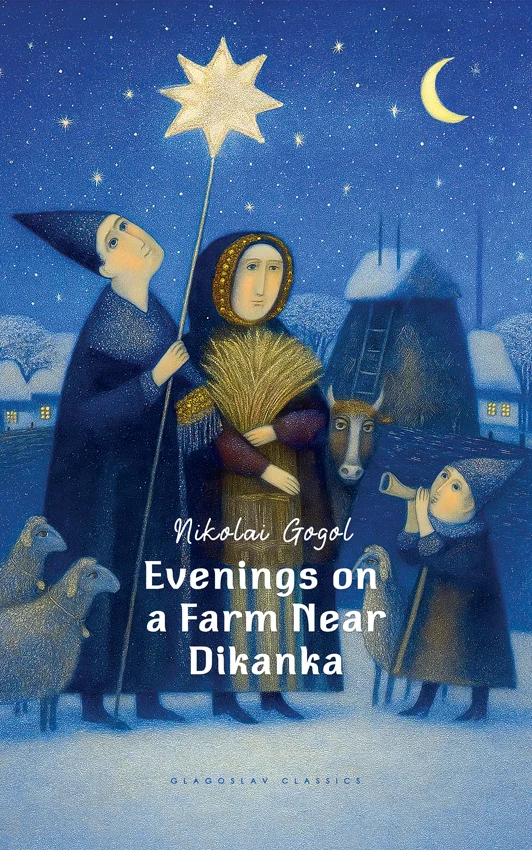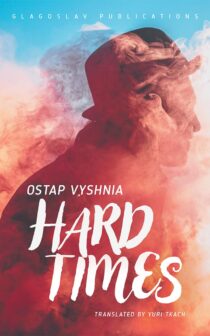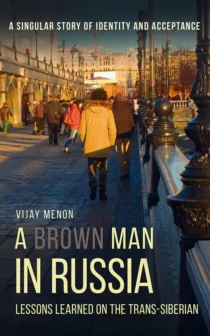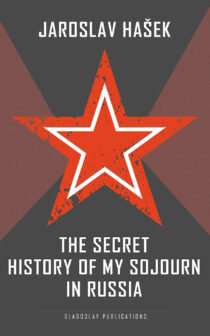Evenings on a Farm Near Dikanka
€24.99
Short Stories / Illustrated Edition
Author: Nikolai Gogol
Translator: Constance Garnett
Editor: Jack Monro
Gogol’s debut collection blends Ukrainian folklore, satire and the supernatural in vivid tales of devils, ghostly maidens, and village mischief — newly edited and illustrated for today’s reader.
Step into the magical, vibrant world of Nikolai Gogol’s Evenings on a Farm Near Dikanka, his extraordinary literary debut that continues to enchant and amuse nearly two centuries on.
Immerse yourself in early 19th-century Ukraine: a land of sun-drenched afternoons and moon-bewitched nights, where ancient folk songs fill the air, mischievous devils haggle for souls, and village laughter mingles with the eerie whispers of water sprites. Young Gogol masterfully blends infectious humour, thrilling supernatural encounters, and unforgettable characters, all framed by the charming narration of the affable beekeeper, Rudy Panko.
From the bustling “Fair at Sorotchintsy” and the devil-outwitting blacksmith in “Christmas Eve” to the epic, chilling horror of “A Terrible Revenge,” these tales showcase the sheer, intoxicating vibrancy of Ukrainian folklore and the birth of a literary genius. Celebrated by Pushkin upon its release, this collection captures a world where the ordinary and the fantastical dance an unforgettable jig.
This edition presents these enchanting tales through Constance Garnett’s pioneering translation, sensitively updated for the contemporary reader. Archaic phrasing has been gently polished to enhance clarity, allowing Gogol’s imaginative power and Garnett’s historic contribution to shine with renewed brilliance.
Why read Evenings on a Farm Near Dikanka today?
- Experience the joyful, unabashedly fantastical wellspring of one of literature’s most original voices.
- Discover a captivating insight into Ukrainian culture and its rich folkloric traditions.
- Simply for the sheer pleasure of robust laughter, genuine wonder, and a cast of characters – human, demonic, and spectral – that will linger long after the final page.
Accept Rudy Panko’s invitation to a literary feast that continues to delight, generation after generation.
| Dimensions | 152 × 229 mm |
|---|---|
| Author | Nikolai Gogol |
| Pages | 178 pages |
| Publication date | 4th June 2025 |
| Book Format | Paperback |
Author
Nikolai Gogol
Nikolai Gogol (1809-1852) remains one of world literature's most profound enigmas, a Ukrainian-born writer whose laughter often masked deep melancholy and whose meticulous realism was frequently infused with the grotesque and supernatural. His fervent spiritual quest ultimately led to a tragic end.
Born in Sorochyntsi, Ukraine, Gogol's heritage deeply influenced his early work. His father wrote Ukrainian comedies, and his mother's religious, superstitious nature, along with regional folklore, provided rich material. Educated at home and then the Nizhyn Lyceum (1821-1828), he developed his literary inclinations, participating in theatre and beginning to write, absorbing Romantic influences and the vibrant Ukrainian culture.
Arriving in St. Petersburg in 1828, Gogol faced initial disappointment. His self-published poem Hans Küchelgarten (1829) was a critical failure, which he famously burned. Brief, disillusioning stints in the civil service provided fodder for later satires. His breakthrough came with Evenings on a Farm Near Dikanka (1831-1832), celebrated for its vibrant Ukrainian folklore, humor, and supernatural elements. This period also saw him enter Alexander Pushkin's influential literary circle, gaining crucial mentorship.
Gogol's creative output flourished. Mirgorod (1835), with stories like "Taras Bulba" and "Viy," showed growing depth. Arabesques (1835) included seminal "Petersburg Tales" like "Nevsky Prospekt" and "Diary of a Madman," exploring urban alienation. His comedic masterpiece, The Government Inspector (1836), a biting satire of provincial corruption, caused an uproar. He also began his epic, Dead Souls.
Disheartened by reactions to his play, Gogol left Russia in 1836, spending twelve years abroad, mostly in Italy. He completed Dead Souls, Part I (published 1842), a satirical sensation depicting a conman buying titles of deceased serfs. However, Gogol grew increasingly preoccupied with sin and redemption, viewing his work as a divine mission. His 1847 publication, Selected Passages from Correspondence with Friends, a didactic and reactionary work, was widely condemned, deeply wounding him. He fell under the influence of the stern priest Father Matvey Konstantinovsky, who reportedly discouraged fiction.
Returning to Russia in 1848, Gogol was tormented by spiritual anguish. A pilgrimage to Jerusalem brought little peace. He struggled with Dead Souls, Part II, which he envisioned as a redemptive arc. In a spiritual crisis in February 1852, influenced by Father Matvey, he burned the manuscript. He then refused food and succumbed to self-neglect, dying in Moscow on March 4, 1852, aged forty-two.
Gogol is a foundational figure of Russian literature, profoundly influencing writers like Dostoevsky ("We all came out from Gogol’s ‘Overcoat’"). He masterfully blended high rhetoric with colloquial speech, irony, and the grotesque, fusing the mundane with the fantastical. The enigma of Gogol—the brilliant satirist who yearned to be a spiritual prophet, dying in despair—continues to fascinate, his work a testament to the tension between the ideal and the real.
Related products
-
Hard Times
€9.95 – €25.55Price range: €9.95 through €25.55 Select options This product has multiple variants. The options may be chosen on the product page -
A Brown Man in Russia: Lessons Learned on the Trans-Siberian
€9.95 – €24.50Price range: €9.95 through €24.50 Select options This product has multiple variants. The options may be chosen on the product page -
Jesus’ Cat
€9.95 – €22.99Price range: €9.95 through €22.99 Select options This product has multiple variants. The options may be chosen on the product page -
Alledaagse Heiligen En Andere Verhalen (Dutch Edition)
€9.95 – €23.99Price range: €9.95 through €23.99 Select options This product has multiple variants. The options may be chosen on the product page -
The Secret History of my Sojourn in Russia
€9.95 – €26.50Price range: €9.95 through €26.50 Select options This product has multiple variants. The options may be chosen on the product page





